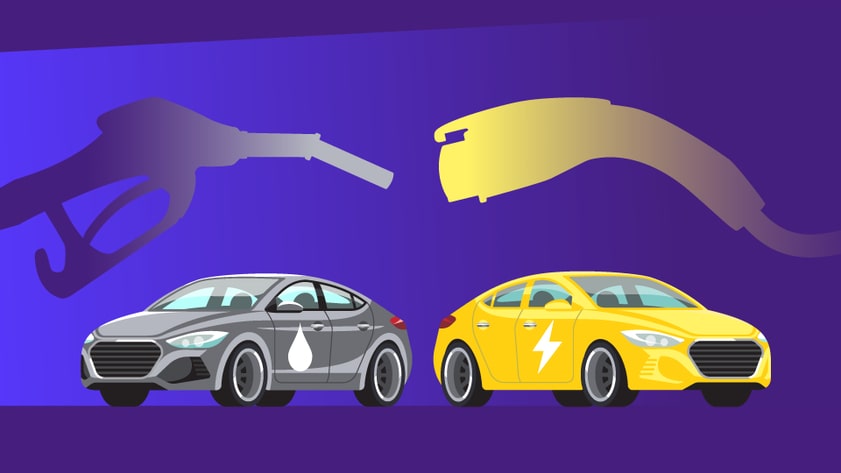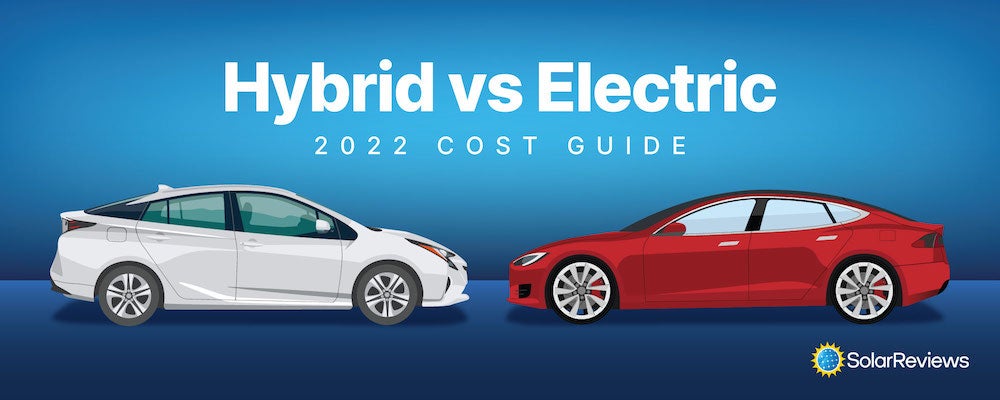Hybrid Vs. Electric Cars: Intro
Let’s dive into the exciting world of Hybrid Vs. Electric Cars!
Are you curious about the difference between hybrid and electric cars? Well, you’ve come to the right place! These two types of vehicles are transforming the way we drive, leading us towards a more sustainable and eco-friendly future. So, buckle up and let’s explore the fascinating world of hybrid and electric cars together!
Hybrid cars are like a combination of two technologies, blending traditional gasoline engines with electric motors. They offer the best of both worlds, combining the efficiency of electric power with the convenience of a gas engine. On the other hand, electric cars are powered solely by electricity, with no need for gasoline. They are emission-free and run on rechargeable batteries, making them incredibly eco-friendly and quiet on the road.
When it comes to choosing between the two, it’s important to consider your driving needs and preferences. Hybrid cars are ideal for those seeking a balance between fuel efficiency and flexibility, as they can run on gas when needed. Electric cars, on the other hand, are perfect for shorter commutes and eco-conscious drivers who want to reduce their carbon footprint. So, which one suits you best? Let’s explore further and find out!
When it comes to choosing between hybrid and electric cars, it’s important to consider their key features.
Let’s compare 5 important aspects:
| Feature | Hybrid Cars | Electric Cars |
|---|---|---|
| Range | Longer range due to combined fuel and electric power | Shorter range, but improving with advancements in technology |
| Environmental Impact | Lower emissions compared to traditional gas-powered cars | Zero emissions, making them more eco-friendly |
| Fuel Efficiency | High fuel efficiency, especially during city driving | No need for fuel, resulting in lower operating costs |
| Charging Time | N/A – Fuels up at gas stations | Longer charging time, but rapid charging options available |
| Availability | Widely available in the market with various models | Increasing availability as more manufacturers embrace electric technology |
Both hybrid and electric cars have their advantages, so consider your driving needs and environmental concerns before making a decision.

Source: enelx.com
Hybrid vs. Electric Cars: Which is the Better Choice?
With the growing concern for the environment and the push for sustainable transportation options, hybrid and electric cars have become increasingly popular. Both offer significant benefits over traditional gasoline-powered vehicles, but they also have distinct differences that make each option unique. In this article, we will delve deep into the world of hybrid and electric cars, discussing their features, advantages, disadvantages, and ultimately helping you decide which option is the better choice for you.
1. Environmental Impact
When it comes to the environmental impact, electric cars take the lead over hybrid vehicles. Electric cars produce zero tailpipe emissions, meaning they don’t release harmful greenhouse gases into the atmosphere. This makes them a much cleaner option compared to their hybrid counterparts. On the other hand, hybrid cars still emit some level of exhaust gases since they rely on a combination of gasoline and electricity for power. While hybrid cars are more environmentally friendly than gasoline-powered cars, they still contribute to air pollution to some extent.
Furthermore, the production of electric vehicles can have a higher initial environmental impact compared to hybrid cars. The process of manufacturing electric car batteries requires the extraction of raw materials such as lithium and cobalt, which can have adverse effects on the environment if not managed responsibly. However, ongoing efforts are being made to improve the sustainability of the battery production process.
In conclusion, while both hybrid and electric cars offer environmental benefits over traditional gasoline-powered vehicles, electric cars have a clear advantage in terms of zero tailpipe emissions and long-term sustainability.
2. Performance and Range
When it comes to performance and range, hybrid cars have the upper hand. Hybrid vehicles combine a conventional gasoline engine with an electric motor, allowing them to offer good acceleration and power. They can also travel long distances without the need for frequent recharging, thanks to their internal combustion engine that replenishes the battery as needed. This makes them a more practical option for those who frequently travel long distances or live in areas with limited access to charging infrastructure.
Electric cars, on the other hand, typically offer instant torque and a smoother driving experience due to their electric motors. However, they have a limited range and require periodic charging to continue operating. This can be a drawback for those who rely on their vehicles for long commutes or road trips. While the range of electric cars is continuously improving, it is essential to consider your driving needs and access to charging stations before opting for an electric vehicle.
In summary, if performance and long-distance travel are your priorities, a hybrid car may be the better choice. However, if you primarily drive within a limited range and have access to charging infrastructure, an electric car can offer a superior driving experience.
3. Cost and Affordability
Cost plays a significant role in the decision-making process when choosing between hybrid and electric cars. In general, electric cars tend to have a higher upfront cost compared to hybrid vehicles. This is primarily due to the expensive battery technology utilized in electric cars. However, it is important to note that the cost of electric vehicles has been steadily decreasing as technology advances and economies of scale are achieved. Additionally, various government incentives and subsidies are available to offset the initial investment in electric cars.
On the other hand, hybrid cars are generally more affordable and accessible to a wider range of consumers. The current market offers a variety of hybrid models at different price points, making them a more cost-effective option for those looking to reduce their environmental impact without breaking the bank.
3.1. Fuel and Maintenance Costs
When comparing fuel and maintenance costs, electric cars have a clear advantage. Electric vehicles are more energy-efficient, meaning they require less energy to operate compared to internal combustion engines. This results in lower fuel costs over time. Additionally, electric cars have fewer moving parts, which translates to lower maintenance costs. Electric vehicles typically require less frequent maintenance, as they eliminate the need for oil changes and have fewer components that can wear out or break down.
Hybrid cars, while still more fuel-efficient than traditional gasoline-powered vehicles, still require regular visits to the gas station. They have both an electric motor and a gasoline engine, meaning they consume both electricity and gasoline. This can lead to higher fuel costs compared to electric vehicles, especially for those who primarily drive in electric mode.
All in all, when considering the cost and affordability factors, hybrid cars are generally more accessible due to their lower upfront cost, while electric cars offer long-term fuel and maintenance savings.
Key Takeaways: Hybrid vs. Electric Cars
- Hybrid cars use both a gasoline engine and an electric motor to power the vehicle.
- Electric cars run solely on electricity stored in a battery, producing zero emissions.
- Hybrids offer better fuel efficiency and can switch between gas and electric power.
- Electric cars have lower operating costs and don’t require gasoline.
- Consider your driving habits and charging infrastructure when choosing between hybrid and electric cars.
Hybrid Vs. Electric Cars: Frequently Asked Questions
Are you curious about the differences between hybrid and electric cars? We’ve got you covered! Check out these common questions and answers to learn more about these innovative vehicles.
1. How do hybrid cars work?
Hybrid cars combine an internal combustion engine with an electric motor and battery. The engine is used to power the car at higher speeds, while the electric motor assists at lower speeds and during acceleration. The battery is charged through regenerative braking, which converts kinetic energy into electric energy. This unique combination makes hybrid cars more fuel-efficient and reduces emissions compared to traditional gas-powered vehicles.
Overall, hybrid cars provide the best of both worlds by utilizing gasoline when needed, but also relying on electricity to enhance fuel efficiency and minimize environmental impact.
2. What are the advantages of hybrid cars?
One major advantage of hybrid cars is their improved fuel efficiency. The combination of the electric motor and battery allows the car to consume less gasoline, resulting in fewer trips to the pump and reduced fuel costs. Additionally, hybrid cars produce lower emissions compared to conventional vehicles, contributing to better air quality and reduced carbon footprint.
Another advantage is the ability to switch between gasoline and electricity, providing flexibility and peace of mind on long trips. Hybrid cars also tend to have a longer lifespan due to the reduced wear and tear on the engine. Finally, some governments offer incentives and tax credits for purchasing hybrid cars, making them more affordable.
3. How do electric cars work?
Electric cars, or EVs, are powered solely by rechargeable batteries. These batteries provide energy to an electric motor, which drives the vehicle’s wheels. Unlike hybrid cars, electric cars do not have an internal combustion engine and therefore produce zero tailpipe emissions. They are charged by connecting to a charging station or through a dedicated charger at home, and the range varies depending on the battery capacity.
Electric cars are highly efficient due to the direct conversion of electrical energy to mechanical energy. They offer a smooth and quiet driving experience while reducing greenhouse gas emissions and dependence on fossil fuels.
4. What are the benefits of electric cars?
One of the main benefits of electric cars is their positive impact on the environment. Since they produce zero tailpipe emissions, they help reduce air pollution and combat climate change. Electric cars also have lower operating costs compared to gasoline-powered vehicles. Charging an electric car is generally cheaper than filling up a gas tank, and they require less maintenance since they have fewer moving parts. Additionally, electric cars provide a quiet and smooth ride, enhancing the overall driving experience.
As technology advances, electric cars are also becoming more affordable and their range is improving, making them a practical option for everyday commuting and long-distance driving. Furthermore, there are various incentives and subsidies available in some regions to encourage the adoption of electric vehicles, further reducing the cost of ownership.
5. Are hybrid cars better than electric cars?
Hybrid and electric cars have their own set of advantages and considerations. Hybrid cars are ideal for those who frequently drive long distances or in areas with limited charging infrastructure. They provide the benefit of using gasoline, which eliminates the range anxiety that sometimes accompanies electric vehicles. Hybrid cars also tend to be more affordable, as they do not rely solely on batteries.
On the other hand, electric cars are more suitable for shorter commutes and urban driving, where charging infrastructure is more readily available. They offer the advantage of zero tailpipe emissions, reducing environmental impact. Electric cars are also evolving rapidly, with improvements in range and recharging times, making them an increasingly viable option for a wider range of drivers.

Source: solarreviews.com
Hybrid vs Electric Car: Which Is REALLY Cheaper?
Summary
Here’s what you need to know about hybrid and electric cars:
Hybrid cars use both electricity and gasoline to run, which makes them more fuel-efficient and eco-friendly than regular cars. Electric cars, on the other hand, run solely on electricity, which means they produce zero emissions and are even more environmentally friendly. Both types of cars save you money on gas, but electric cars need to be charged at charging stations or at home. Hybrid cars are more popular right now because they have longer ranges and are more convenient to use. In the end, it’s up to you to decide which type of car suits your needs and helps save the planet!
